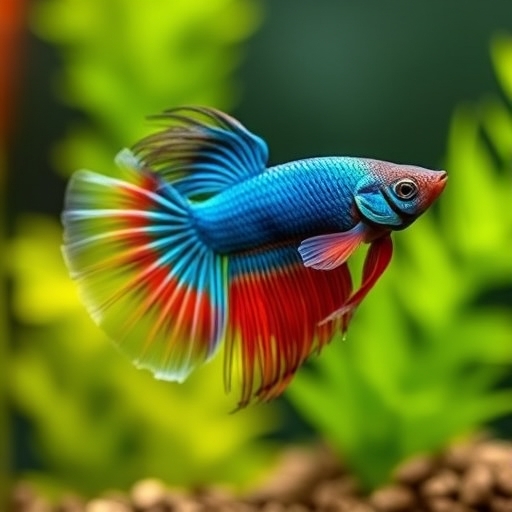How to Use Aquarium Salt for Betta Fish
Aquarium salt is a common remedy for various health issues in fish, particularly for bettas, which are known for their vibrant colors and personality. This article will delve into the uses, benefits, and proper application of aquarium salt for betta fish, ensuring your aquatic friends remain healthy and vibrant.
What is Aquarium Salt?
Aquarium salt is a type of salt specifically designed for use in aquariums. It is different from table salt, which contains additives that can be harmful to fish. Aquarium salt is usually made from sodium chloride and is available in various forms, including granules and crystals.
Types of Aquarium Salt
- Marine Salt: Used in saltwater aquariums, contains various trace elements.
- Freshwater Aquarium Salt: Specifically formulated for freshwater fish, including bettas.
- Kosher Salt: A natural alternative that can be used in emergencies but should be used cautiously.
- Disease Treatment: Helps treat common fish diseases such as ich, fin rot, and velvet.
- Stress Reduction: Reduces stress and promotes healing after injury or illness.
- Gill Functionality: Supports gill function by aiding in osmoregulation.
- Electrolyte Balance: Helps maintain proper electrolyte balance in fish.
- New Fish Introductions: To help acclimate new fish to the tank.
- Quarantine: When isolating sick fish to prevent the spread of disease.
- Water Changes: To help maintain water quality during significant changes.
- Slow Introduction: Gradually introduce the salt solution into the aquarium to avoid shocking your betta. Pour it slowly near the water surface or filter to help distribute the salt evenly.
- Rapid gill movement
- Hiding or lethargy
- Loss of appetite
- Short-Term Use: Generally, aquarium salt should not be used for extended periods. A treatment duration of 3-5 days is recommended for most conditions.
- Water Changes: Perform regular water changes during treatment to help maintain water quality.
- Underlying Issues: Salt can help with symptoms but not necessarily cure the underlying problems. Always address water quality and environmental factors.
- Tank Mates: Ensure that any other fish in the tank can tolerate salt. Some species are more sensitive to salt than others.
- Individual Sensitivity: Each betta fish may react differently to salt. Always start with lower doses to assess tolerance.
Benefits of Using Aquarium Salt for Betta Fish
Using aquarium salt can provide several benefits for betta fish, including:
When to Use Aquarium Salt
While aquarium salt can be beneficial, it’s essential to understand when to use it. Here are some situations where aquarium salt may be appropriate:
Common Health Issues
1. Ich (White Spot Disease): Characterized by white spots on the fish’s body.
2. Fin Rot: The deterioration of the fins, often due to poor water quality.
3. Velvet Disease: A velvet-like coating on the fish, indicating a parasitic infection.
4. Stress: Signs of stress may include hiding, lack of appetite, or unusual swimming patterns.
Situations
How to Use Aquarium Salt for Betta Fish
Using aquarium salt safely and effectively requires careful attention to dosage and method of application. Here’s a step-by-step guide.
Step 1: Choose the Right Salt
Ensure that you are using freshwater aquarium salt specifically designed for freshwater fish. Avoid using table salt or any salt with additives.
Step 2: Prepare the Solution
1. Calculate Dosage: The general recommendation is 1 teaspoon of aquarium salt per gallon of water. However, for sensitive fish like bettas, it’s advisable to start with a lower concentration, such as 1/2 teaspoon per gallon.
2. Dissolve the Salt: Mix the salt in a small container of water from the tank to dissolve it completely before adding it to the aquarium. This helps prevent salt from settling on the substrate.
Step 3: Add to the Tank
Step 4: Monitor Fish Behavior
After adding salt, observe your betta closely for any changes in behavior. Look for signs of stress or adverse reactions, such as:
Step 5: Duration of Treatment
Step 6: Remove Salt After Treatment
Once the treatment period is over, perform a water change to dilute and remove the remaining salt from the aquarium. This is crucial, as prolonged exposure to salt can be harmful to bettas.
Important Considerations
While aquarium salt can be beneficial, it’s essential to use it wisely. Here are some important considerations:
Not a Cure-All
Compatibility
Betta Sensitivity
Simple Comparison Table: Aquarium Salt vs. Table Salt
| Feature | Aquarium Salt | Table Salt |
|---|---|---|
| Composition | Pure sodium chloride | Sodium chloride + additives |
| Designed for | Aquatic environments | Human consumption |
| Usage | Fish health treatment | Cooking and food preservation |
| Safety for Fish | Safe when used correctly | Harmful due to additives |
| Availability | Aquarium stores, online | Grocery stores |
Frequently Asked Questions (FAQ)
Can I use aquarium salt in a betta tank with live plants?
Yes, aquarium salt can be used in tanks with live plants, but it’s essential to monitor the salt concentration and ensure the plants can tolerate it.
How often should I use aquarium salt?
Aquarium salt should not be used continuously. It is typically recommended for short-term treatments lasting 3-5 days. Regular use can lead to long-term health issues for your betta.
What should I do if my betta shows signs of stress after adding salt?
If your betta shows signs of stress, perform a partial water change to dilute the salt concentration and monitor your fish closely.
Is aquarium salt safe for other fish species?
Most freshwater fish can tolerate aquarium salt, but some species are more sensitive. Always research the specific needs of your fish before adding salt to the tank.
Can I use aquarium salt for breeding bettas?
Using aquarium salt during the breeding process is generally not recommended, as it can stress the fish and affect breeding behavior. It’s best to avoid using salt during this time.
Conclusion
Aquarium salt can be a useful tool in maintaining the health of your betta fish when used correctly. Understanding its benefits, proper usage, and potential risks is crucial for ensuring the well-being of your aquatic companions. Always prioritize water quality and monitor your fish closely when introducing any new treatment. With the right care, your betta can thrive in a salt-treated environment, leading to a vibrant and healthy life.





